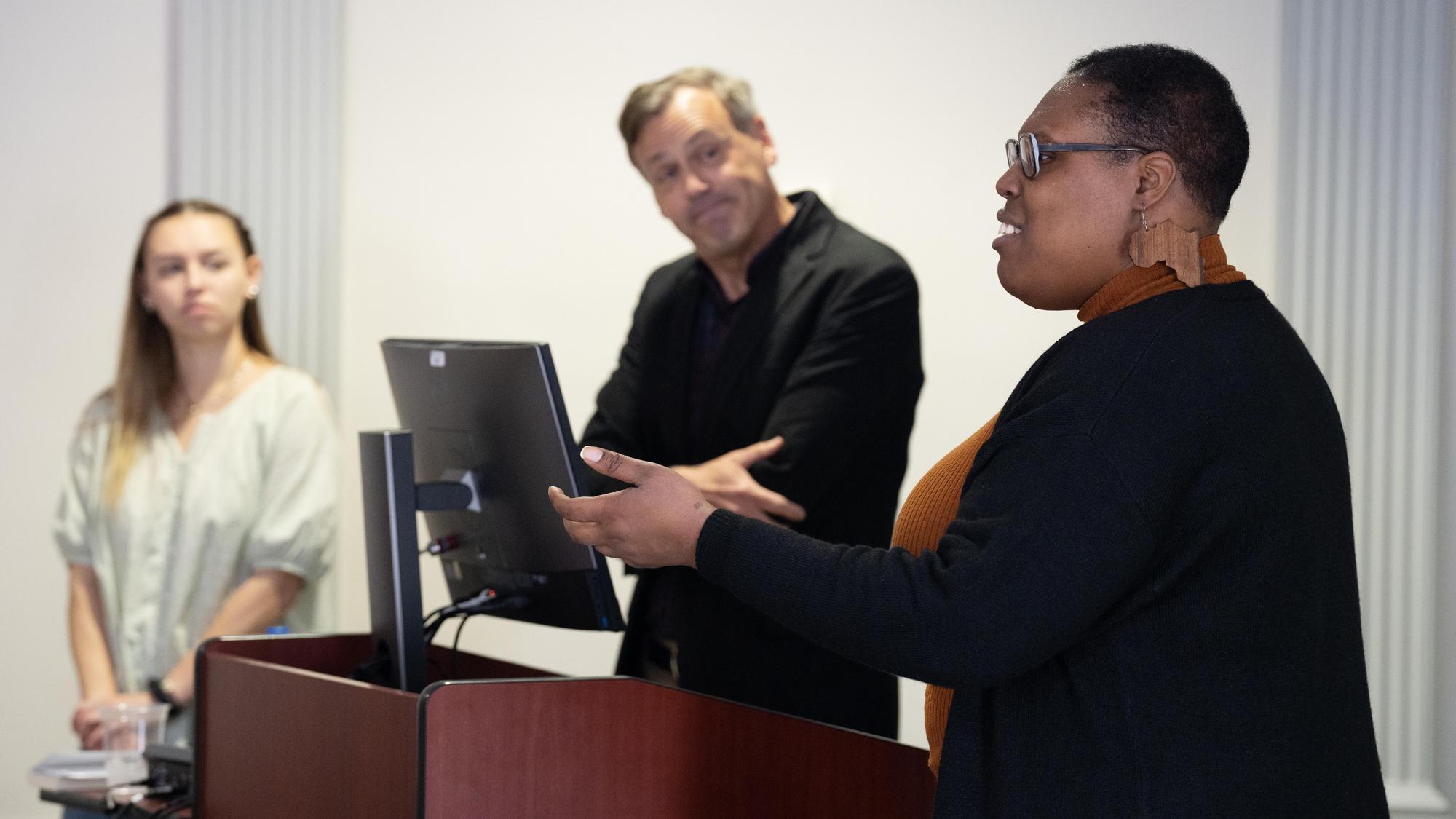The enduring influence of ‘The Bluest Eye’

Since its publication in 1970, Toni Morrison’s debut novel has been praised for its “profound and unrelenting vision,” as “a profoundly successful work of fiction” written with “prose so precise, so faithful to speech and so charged with pain and wonder that the novel becomes poetry.” The author, hailed for the “visionary force and poetic import” of her writing, received the Nobel Prize in literature in 1993. As a powerful narrative of the African American experience, “The Bluest Eye” has been a frequent addition to reading lists and school curricula.
The novel has also been a frequent target of book banning. School boards and citizens’ groups have accused it of containing “sexual content and dark themes,” “obscene and/or pornographic material” and an “underlying socialist-communist agenda.”
In the last few days of Black History Month, a Lunch and Lit event hosted by Furman’s chapter of the English honor society, Sigma Tau Delta, examined the impact of the novel and how the varied reactions to it have reflected societal motives and prejudices in the last half century.
“What is the fear that white people have that they don’t want to be seen?” asked Shi Pope ’23, president of Sigma Tau Delta, during the discussion. “What are they trying to hide from us?”
The novel examines racial identity and beauty myths through the eyes of one of its protagonists, a young dark-skinned girl named Pecola living in post-Great Depression Ohio. Constantly scorned and ostracized as “ugly” by those around her, Pecola desperately longs to have blue eyes and the beauty she associates with whiteness.
Pecola is surrounded by poverty and domestic violence. She suffers parental rape, the death of her premature infant daughter and, ultimately, insanity. Morrison narrated these horrors unflinchingly – as have scores of white writers who aren’t targeted for bans, noted Timothy Helwig, a visiting professor of English.
“It always feels like a misdirect,” he said. “Look at Shakespeare and Edgar Allan Poe. These topics are all over the place.”
White critics of “The Bluest Eye” may be challenged by “a Black-centered book,” added Rhaynae Lloyd ’23, an urban studies major. “If [the main character was] a white girl, they would be able to feel that empathy and know why it’s important to read,” she said. “Because readers can’t empathize with Black people, they only see these grotesque, violent crimes.”
Banning a book like “The Bluest Eye” robs readers in minority communities of the chance to see representation in literature, said Kaniqua Robinson, an assistant professor of anthropology.
“I appreciated ‘The Bluest Eye’ because I saw myself in it,” she said. “I saw a Black woman existing. It got the nuance of what it means to be Black – the trials, the failures, the successes, the daily experiences.”
Morrison, who became the first Black fiction editor at Random House before becoming a novelist, always “worked to uplift Black voices and Black writing,” said Robinson. “Her goal was never to cater to white audiences. She knew it was important that we talk about our stories in our way to our people.”
In early October, Sigma Tau Delta will participate in Banned Books Week, said Sigma Tau Delta’s faculty advisor, Margaret Oakes, a professor of English. She also pointed participants toward the James B. Duke Library’s display of banned and challenged books.
“You’d be amazed by some of the books that people have challenged,” Oakes said. “But a lot of the times, they were ultimately put back. So do not lose hope. Sometimes these people do not win the day once somebody sees the value of a book.”